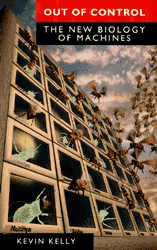
The Internet is changing the way the world works in a lot of ways. From work to play to hobbies, the Web is touching almost everything that we do. One of the primary tools that the Internet uses to disrupt things is the reduction of transaction costs.
Transaction costs are basically the costs of buying something that are outside of the actual price. Wikipedia gives the example of buying a banana; transaction costs include figuring out what kinds of bananas you like, traveling to the store, waiting in line, etc. (Note that not all of these costs actually cost money - losing time and energy are also real costs)
We have already seen a hint of how the Internet reduces these costs, and how dramatically that can change industries and behavior. Before the Internet, the idea of having hundreds of thousands of people work together to create an encyclopedia would be beyond ludicrous. Just finding that many people willing to help would be incredibly expensive, and then organizing and reconciling their contributions would be very nearly impossible.
Reading about the creation of the original Oxford English Dictionary shows just how difficult a project like this used to be. For years, editors received over 1,000 slips of paper per day from word-lovers around the world, detailing word usage. They stored the slips of paper in 1,029 pigeon-holes in "the Scriptorium", a large shed built specifically to store and organize the submissions. Seventy years (yes, 70!) after the project began, the full dictionary was published. Multiple editors had given the majority of their lives to the project, and most died before it was completed. And all that for "only" 252,200 entries. In less than 10 years, Wikipedia editors have created and collaborated on over 9,000,000 articles (almost 3.5 million for just the English language Wikipedia).
The transaction costs to recruit volunteers and organize information still exist, but the Internet (along with tools like wikis) has reduced them at least 1000-fold, and probably much more. This reduction in costs has made the previously impossible happen, to our benefit.
There are plenty of other transaction costs that the Internet is starting to chip away at. Email and Twitter and Facebook make it much easier for us to communicate with each other. Amazon and Ebay have made it much easier for us to research products and to buy and sell things. Knowing that I can resell almost anything that I buy changes my attitude toward buying things. I see a lot of things as short-term purchases that I can own for as long as I want, and then sell to someone else. That is a new option.
These trends are only going to continue. There are stirrings of other industries where the Internet and its associated technologies are starting to change things. Peer-to-peer lending like Lending Club allows savers to lend money to borrowers, using the Internet as the aggregator and middleman instead of a bank, thereby offering better returns to investors, and better rates to borrowers.
Other companies like Whipcar and airbnb let you rent out your car or a room in your house, respectively. The Internet may allow us to move from an ownership society to a "rentership" society, where the Internet makes it convenient enough and cheap enough to rent things as we need them, from cars to power tools, and maybe even cameras and snow shovels.






